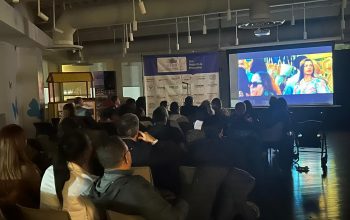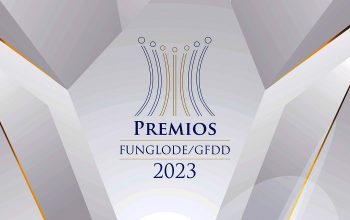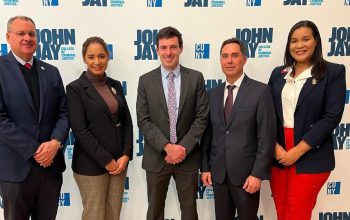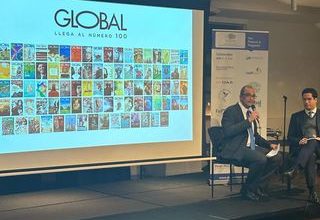news
Panel Discussion on Constitutional Reform Featuring President Leonel Fernández
September 25, 2007
Global Foundation for Democracy and Development (GFDD), Fundación Global Democracia y Desarrollo (FUNGLODE) and the Center for Strategic and International Studies (CSIS) organized a panel discussion on constitutional reform on September 18, 2007, at the Center for Strategic and International Studies in Washington, DC.
 The panel featured Dominican President and GFDD and FUNGLODE Honorary President, Leonel Fernández. The panel was moderated by Roberto Álvarez, Permanent Representative of the Dominican Republic to the Organization of American States and comprised by José Miguel Insulza, Secretary General of the Organization of American States; Flavio Darío Espinal, Ambassador of the Dominican Republic to the White House; Claudio
The panel featured Dominican President and GFDD and FUNGLODE Honorary President, Leonel Fernández. The panel was moderated by Roberto Álvarez, Permanent Representative of the Dominican Republic to the Organization of American States and comprised by José Miguel Insulza, Secretary General of the Organization of American States; Flavio Darío Espinal, Ambassador of the Dominican Republic to the White House; ClaudioGrossman, Professor and Dean of Washington College of Law at American University; and Rosario Espinal, Professor of Sociology at Temple University.
Key themes discussed by panelists included: transparency, separation of powers, definitions of citizenship and international human rights norms.
Moderator, Roberto Álvarez, opened the panel discussion, stating that the
constitutional reform process taking place in the Dominican Republic is both timely and symbolic of a new period of elevated democracy and development that has been transpiring under the leadership of President Fernández. The present constitutional reform is historic is that it is incorporating public opinion.
constitutional reform process taking place in the Dominican Republic is both timely and symbolic of a new period of elevated democracy and development that has been transpiring under the leadership of President Fernández. The present constitutional reform is historic is that it is incorporating public opinion.
Flavio Darío Espinal discussed the constitutional reforms that have been carried-out in the Dominican
Republic during previous decades and highlighted the distinctive nature of the process occurring presently. The new constitution has been generated based on the opinions of the public and the expertise of constitutional specialists.
Republic during previous decades and highlighted the distinctive nature of the process occurring presently. The new constitution has been generated based on the opinions of the public and the expertise of constitutional specialists.


Rosario Espinal provided an assessment of both minimalist and maximalist constitutions and concluded that a complete minimalist constitution is more effective than an incomplete maximalist one. She argued that a well formulated constitution does not commit to deliver unrealistic promises, but instead clearly delineates citizens’ rights and defines limits of power. Aspects of the text that Professor Espinal articulated
as problematic were its religious references and its failure provide a space for the future advancement of women’s reproductive rights. She also questioned the definition of citizenship outlined in the most recent draft of the constitution which includes children of Dominican nationals living abroad but excludes children of illegal immigrants residing in the Dominican Republic. She suggested that the definition of “Dominican” be reexamined.
as problematic were its religious references and its failure provide a space for the future advancement of women’s reproductive rights. She also questioned the definition of citizenship outlined in the most recent draft of the constitution which includes children of Dominican nationals living abroad but excludes children of illegal immigrants residing in the Dominican Republic. She suggested that the definition of “Dominican” be reexamined.
José Miguel Insulza discussed, in general terms, elements critical to formulating a constitution which allows for democratic advancement. According to Insulza, all well written constitutions should include the following principals: balance of power, freedom to participate in political processes, freedom of speech, freedom of press, freedom of religion, freedom of organization, equal rights for men and women and workers
rights.
rights.
Like other panelists, he also emphasized the symbolic nature of the constitutional reform process taking place in the Dominican Republic, positing that constitutional reform is representative of democratic stability and consensus.
Claudio Grossman stressed the state’s obligation t





